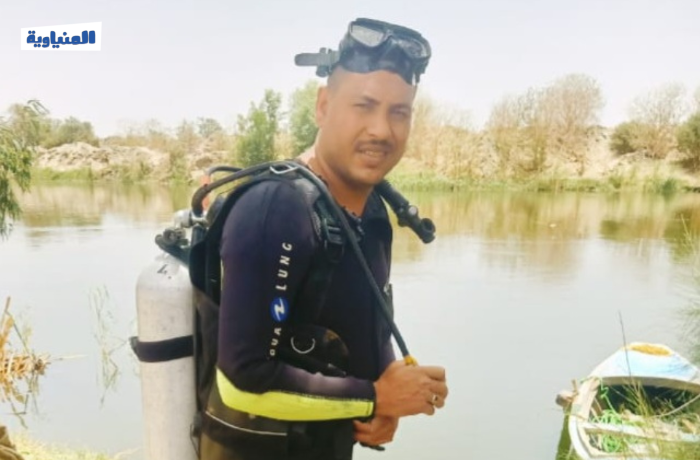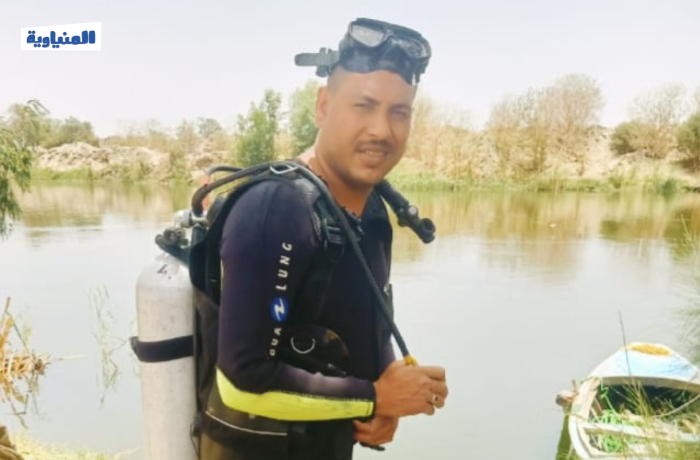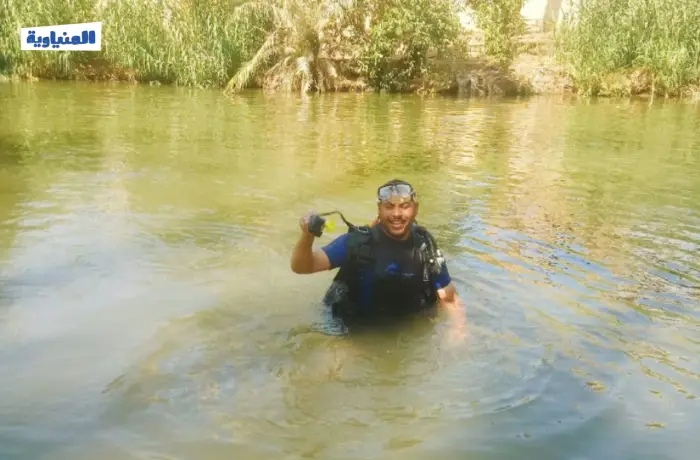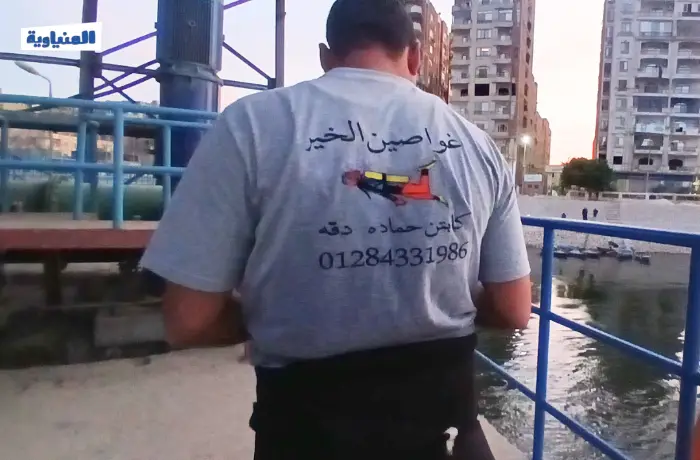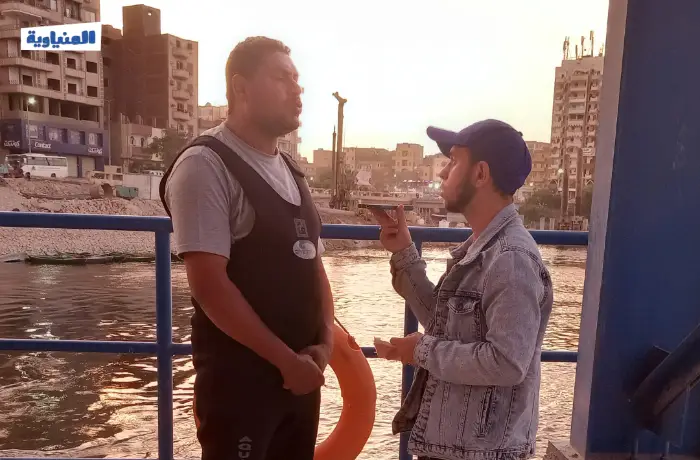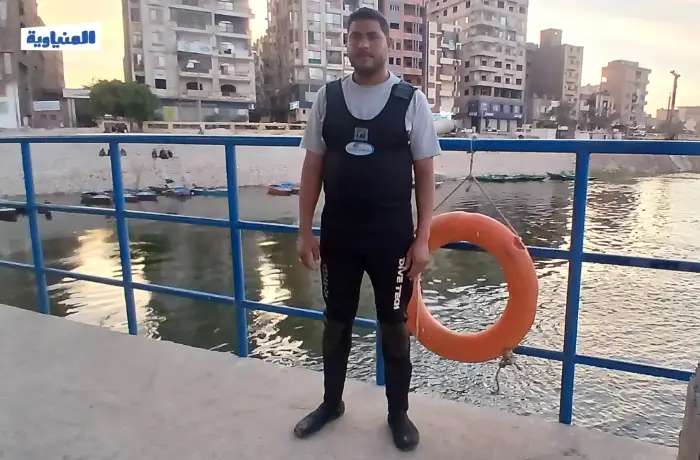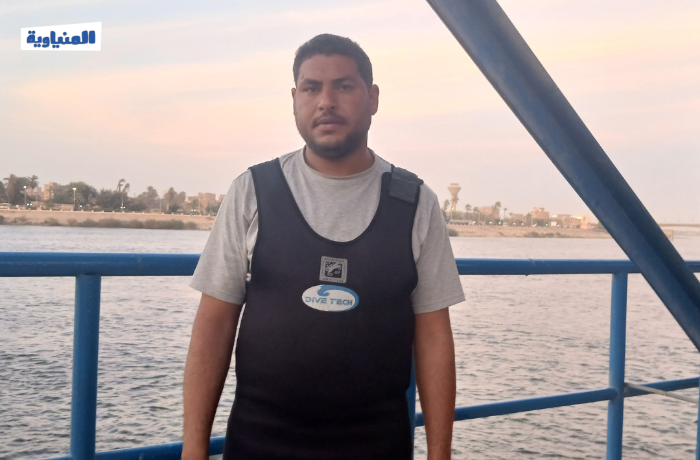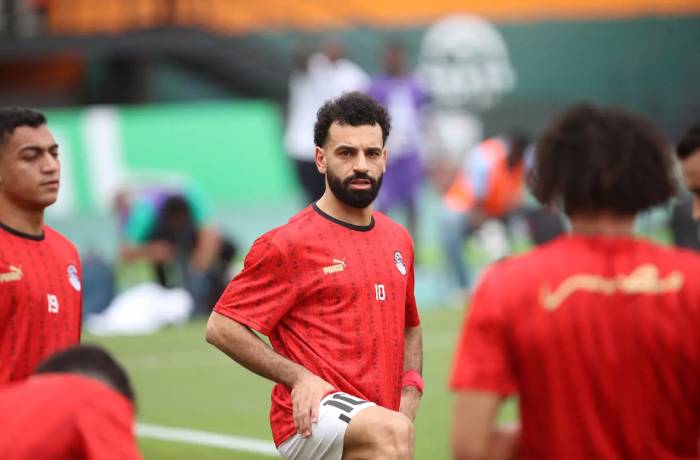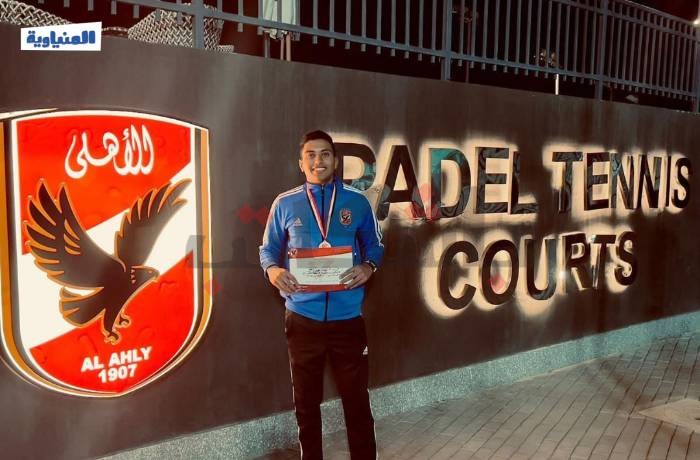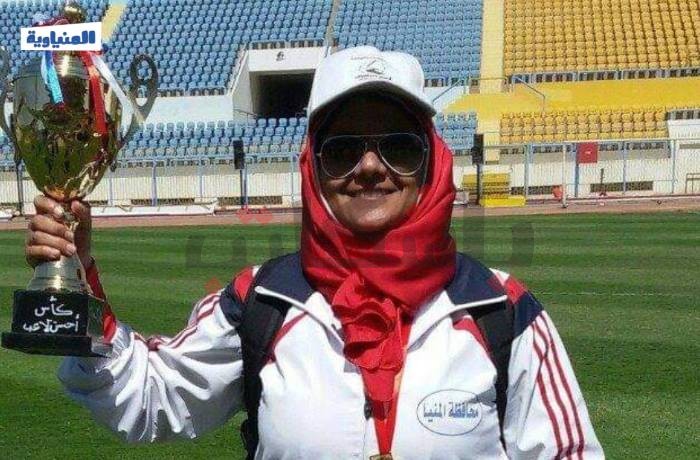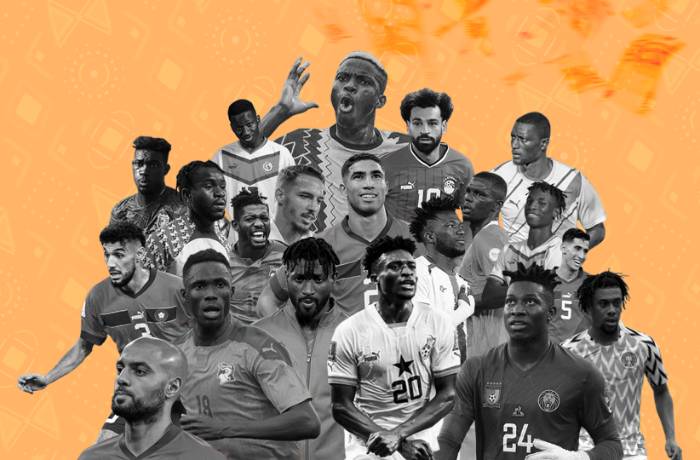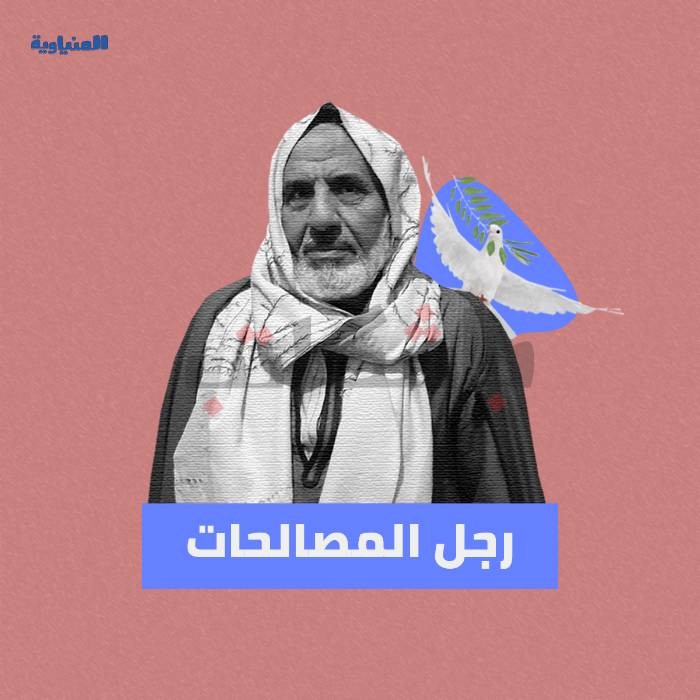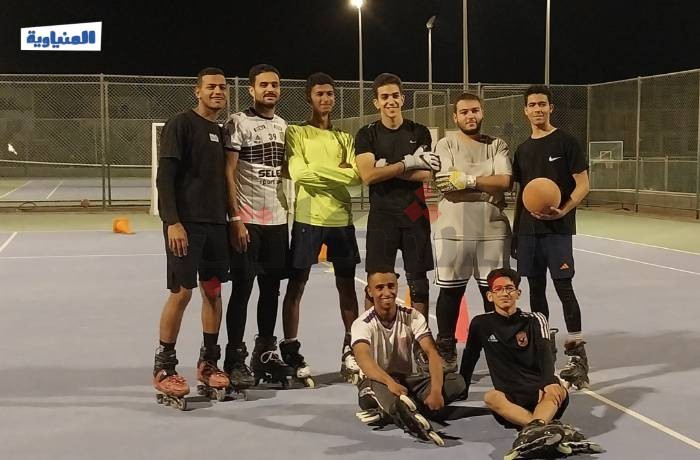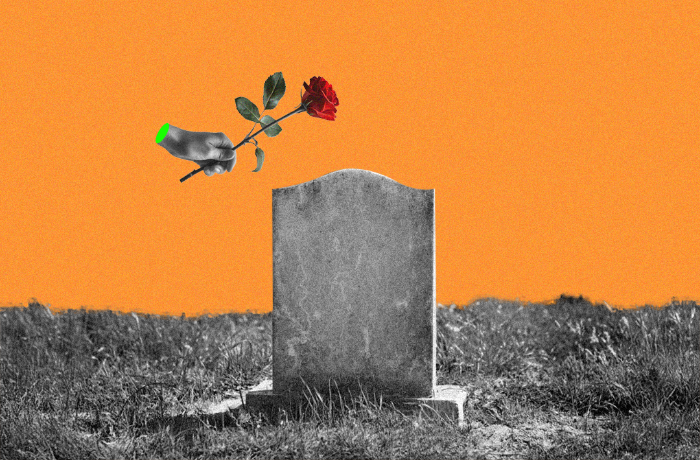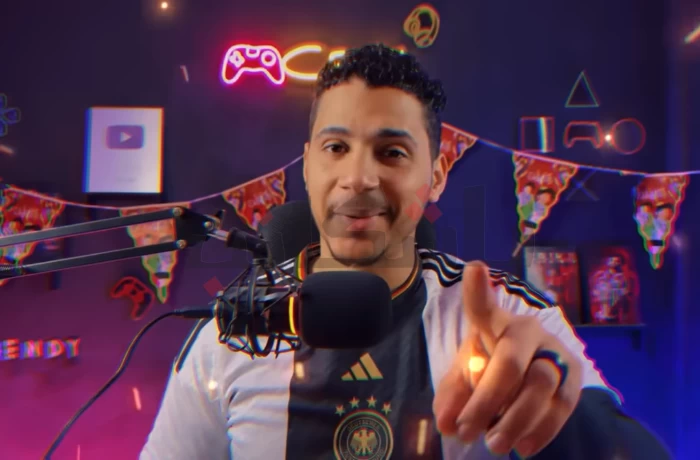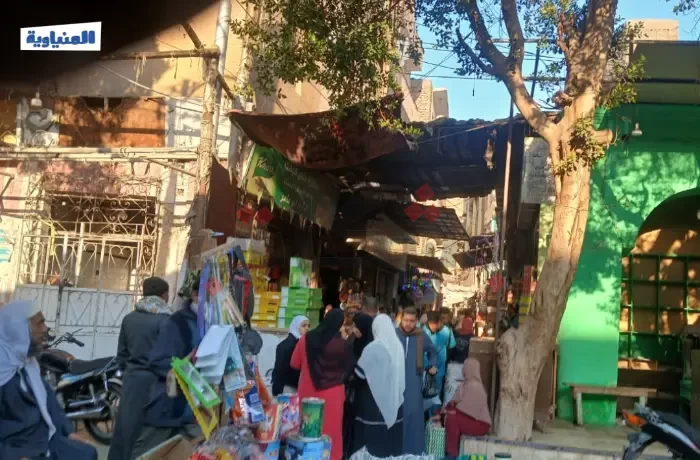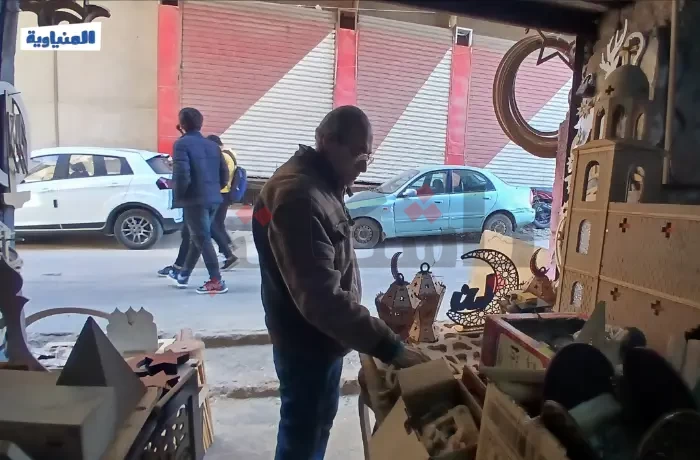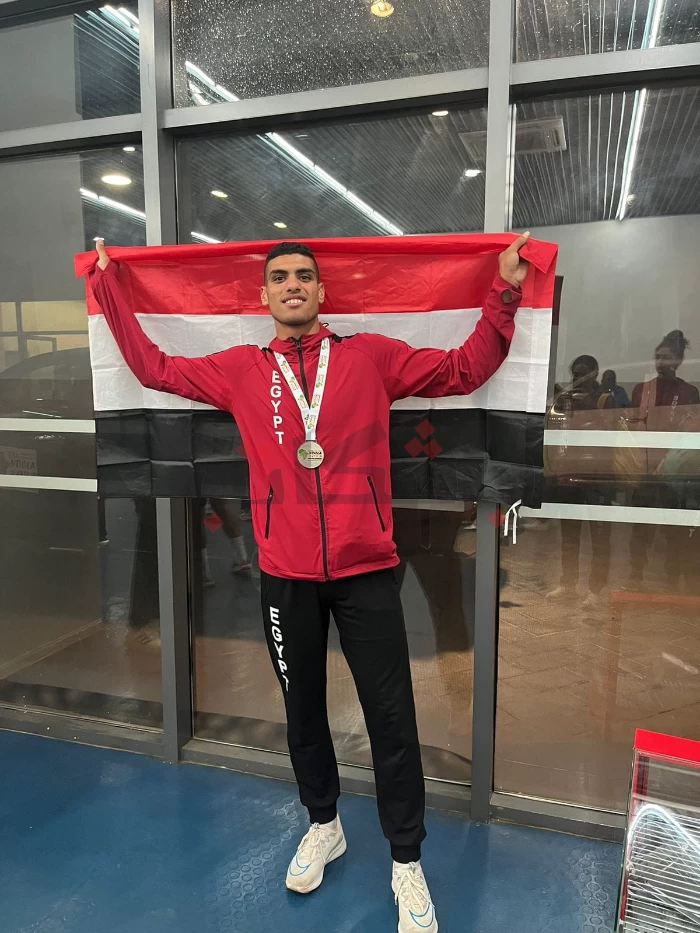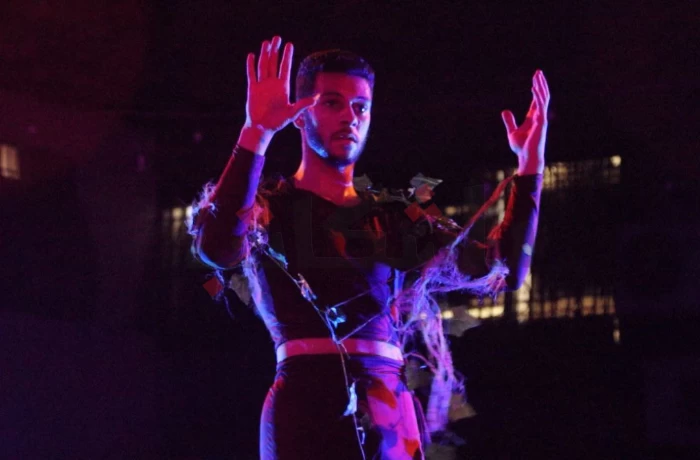It is the year 2019, a cry for help breached the serenity of Jazirat Shendawil village, Tama town, Sohag governorate, as one of the village’s young men has drowned, and for weeks, the villagers discussed nothing but the drowning of one of its sons, the attempts to console his family, and the arrival of one of the Nile divers, not to save the young man, but to recover his body from the river bed so they can give him a proper burial.
Some of the villagers managed to contact divers from Aswan and Assiut cities, for they couldn’t find one in Sohag, among those divers was the 35-years-old Hamada Daqqa, whom accident prompted to undergo training that would change the course of his life, and the lives of other residents of his village and other villages whose children are lost in the Nile.
Hamada’s journey started five years ago, through which he turned to a professional diver and drowning victims recoverer. He says that he started learning the basics of diving from Ahmed Saber, Assiut city resident, whom he met on “Divers Volunteers” WhatsApp group.
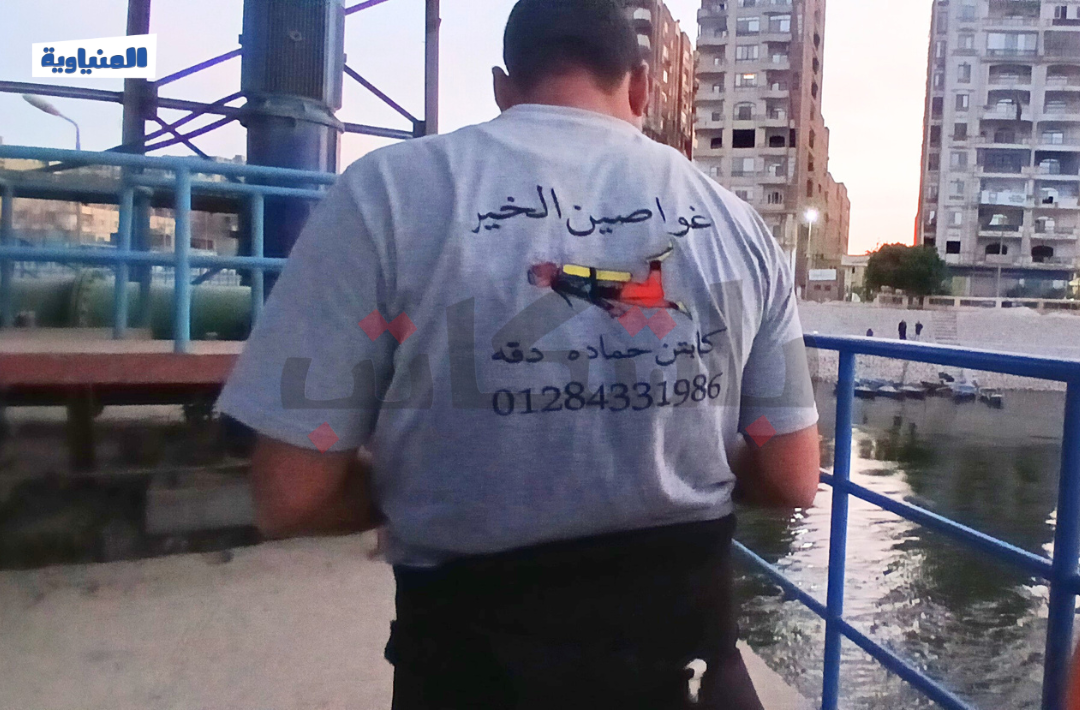
Hamada liked the idea that Ahmed Saber saved people for free, so he contacted him so he could teach Hamada diving. At first, he worked as Saber’s assistant, helping him carry the equipment during searching the Nile for “bodies”.
Those divers from different Egyptian governorates meet on a WhatsApp group where they post the drowning cases, so that those who can would go and quickly recover the body.
Hamada’s work was not limited to Sohag only, “I searched for dead bodies all over Upper Egyptian governorates.”
He doesn’t get paid for recovering the drowned bodies, for he only seeks the prayers of the deceased families, “recovering the dead body puts the hearts of its family at rest,” says Hamada who feels sad that some divers require 7,000 or 10,000 for recovering the bodies, which he sees as taking advantage of the grieving families.
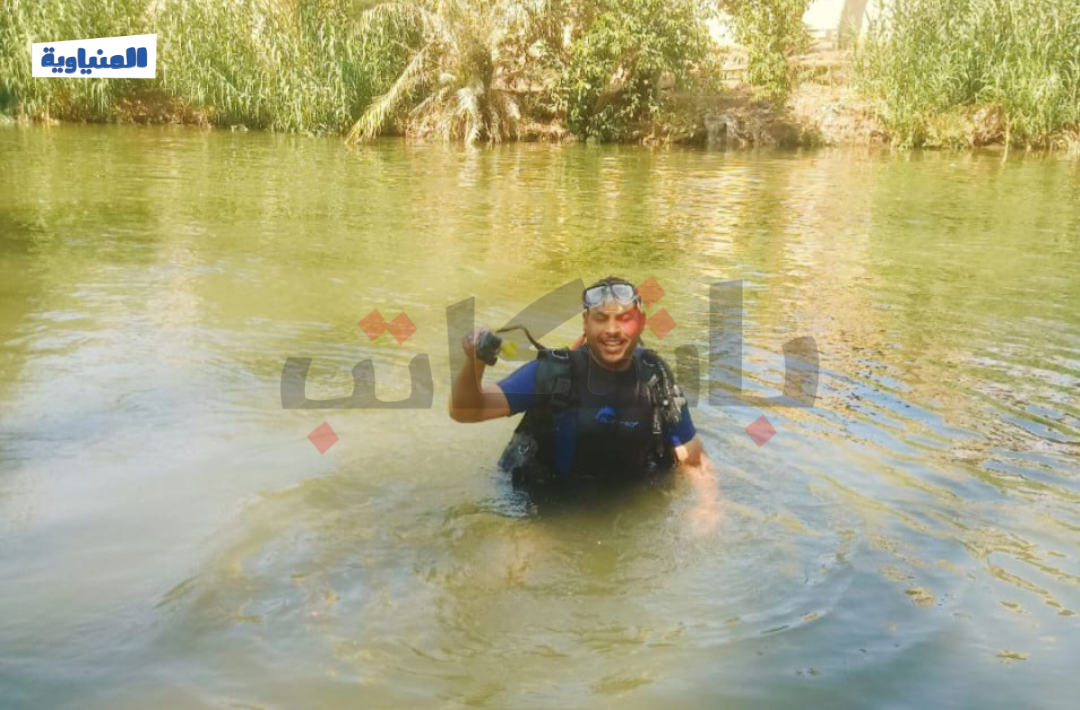
After learning how to dive, Hamada started working in tourism, as he became himself an assistant diving instructor, specifically in one of the diving companies in Hurghada. When he returns to his village during holidays, he doesn’t hesitate to volunteer to search for drowned bodies, “unlike river rescue divers who search for bodies for three days maximum, we search longer, in case they were unable to find the body.”
River rescue divers differ from them in that they receive the report through the police, while they are similar in that they do not receive any financial compensation either.
Clarifying how they work, Hamada says, “first I receive the report and the police report study, the drowned person’s family send a picture of them, then we talk to eyewitnesses to learn the place where the said person drowned, we start determining the search kilometres, taking into account the speed and direction of the Nile current.”
Hamada cannot start searching before the river rescue divers do their work; “to be honest, the River Rescue Unit provides us with Oxygen for our tanks, which is done on a friendly basis as they appreciate our work.”
But it is not that easy, as Hamada and his colleagues may be subjected to legal inquiry if they started their work before the river rescue teams, also in the event of criminal suspicion regarding the body.
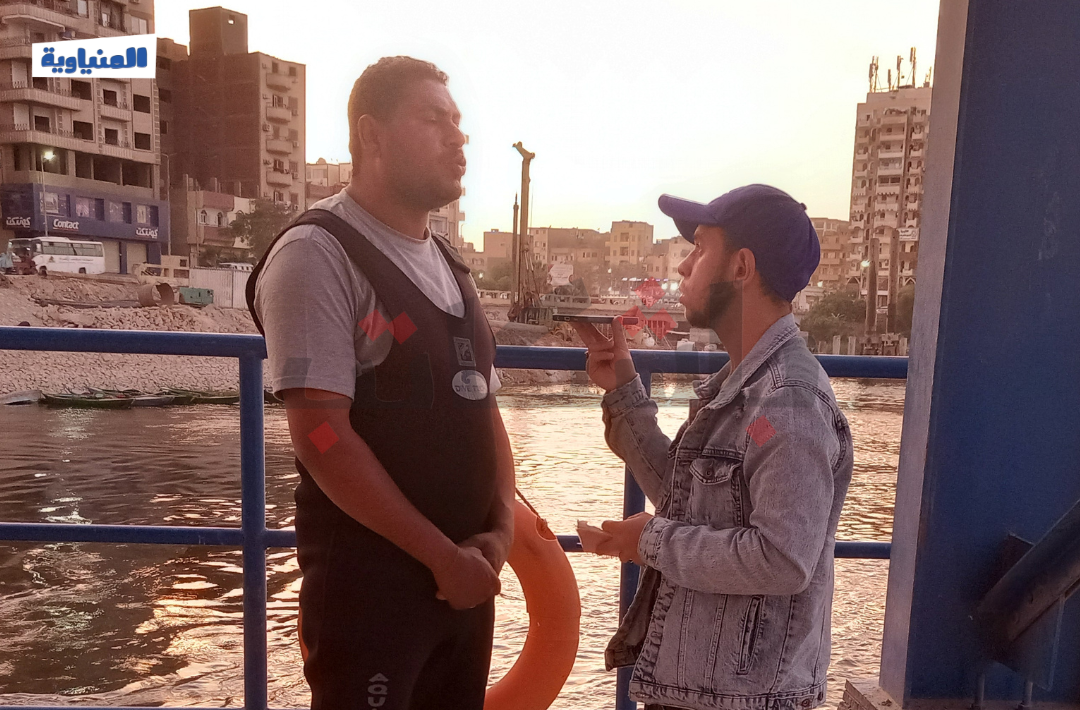
According to Hamada, volunteer divers do not face any obstacles regarding diving in the Nile, “for the River Rescue Unit knows that we are trained and also appreciates the role we play in helping the drowned person’s family to retrieve the body.”
Hamada, who is now an assistant diving instructor, obtained two stars in diving from PADI Centre in Hurghada, which is an authorised centre for teaching diving and has other branches all over the coastal cities.
Usually, Hamada spends more than two weeks in his village, during which he answers any calls for help, since his work in tourism is generally more frequent during summer.
Despite the difficulties Hamada faces during the search process, he doesn’t mind them, “I’m just trying to do anything to ease the pain of the families who are crushed by sadness over the death of their loved ones through finding the body and helping them bury it, when I am underwater, I do not think of anything except searching for the body and recovering it.”
On the other hand, Hamada confirmed that sometimes some of the families criticise him, “some claim that I didn’t search wide and far, and others thinks that I need to search in a specific area so I can find the body, and I always consider their grief and understand what they’re going through.”
Hamada adds that despair sometimes pushes the deceased family into committing mistakes, “sometimes the grieving family would seek the help of charlatans to tell them where their loved ones’ bodies are, and I always tell them that this is false and would only hurt them more.”
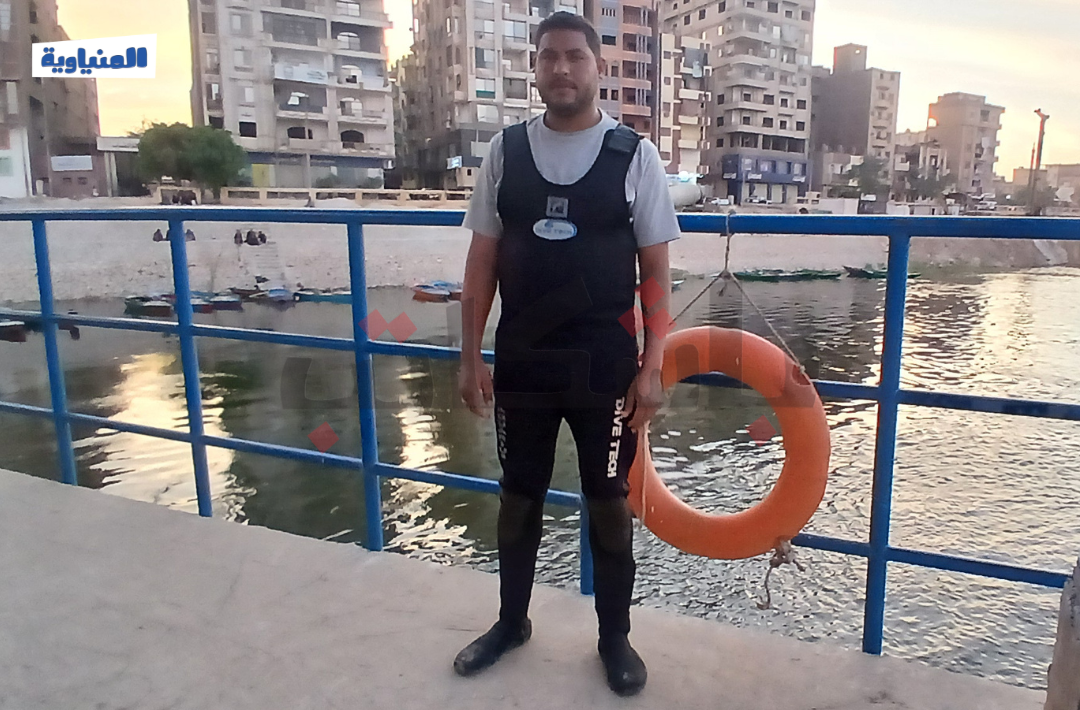
What Hamada needs to dive is an “air tank” charged with 200 bars, “this tank is sufficient for a two-hours diving”, he also uses an air regulator for breathing and a lead weight, which is a weight made of lead placed around the middle of the diver’s body to help them balance and dive underwater, the weight is determined by the diver’s weight and the depth they’re aiming for in the water.
As for the perfect timing for recovering the body, Hamada says, “from 08:00 am until 02:00 pm, as we need to use the sunlight for better vision underwater, and if I have to search at night, then I take a flashlight.”
After recovering the body, no one is allowed to touch the body, the diver would cover it and wait for an ambulance to take it to the hospital.
Hamada faced many difficulties during the search processes; the longest search he went through was for a 14-years-old child, he spent around four days looking for the body, and managed to recover it at last.
